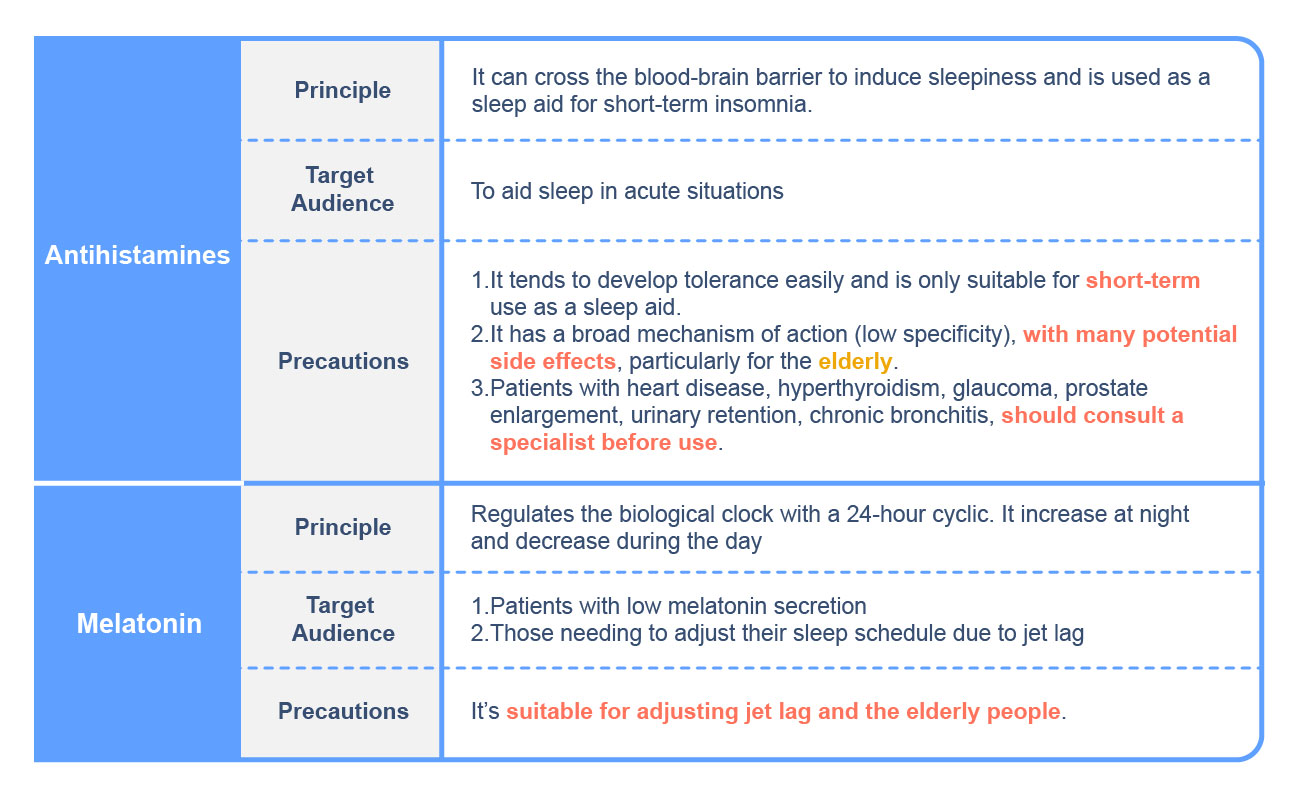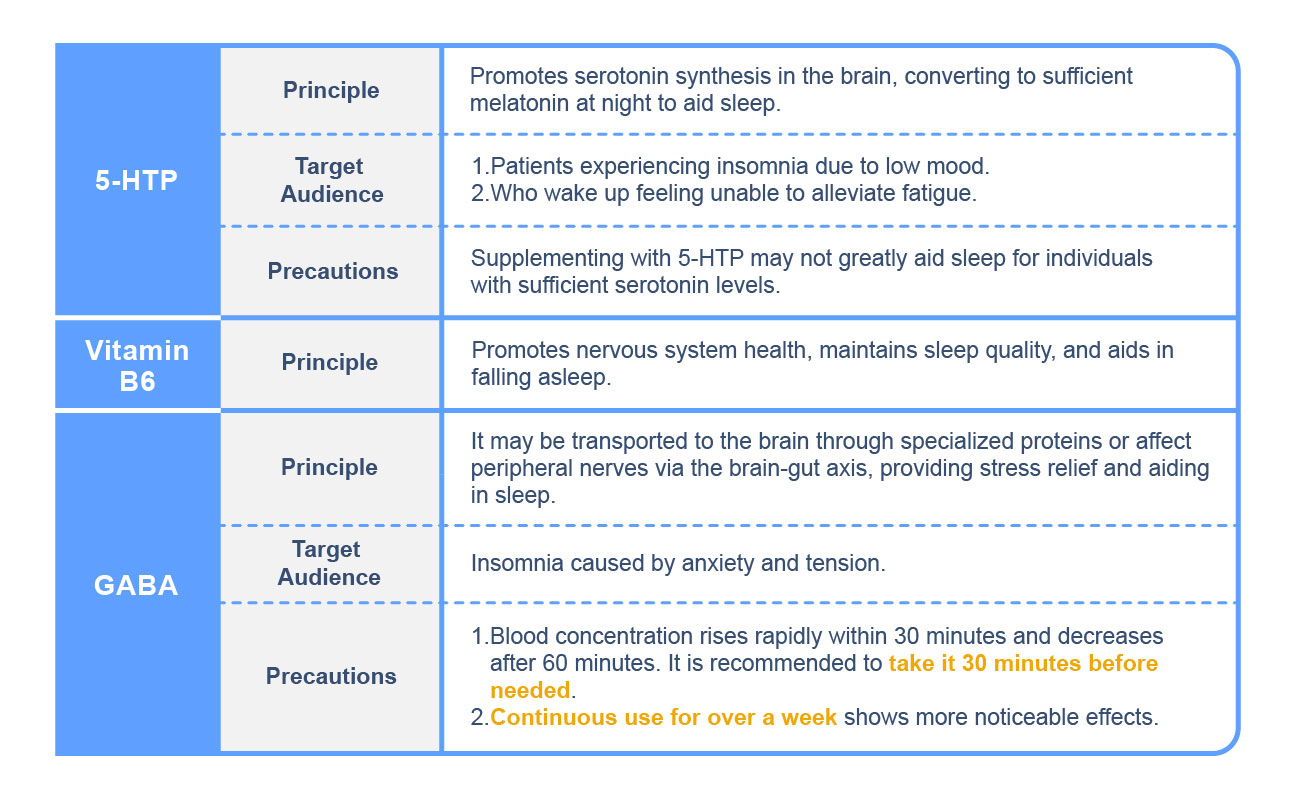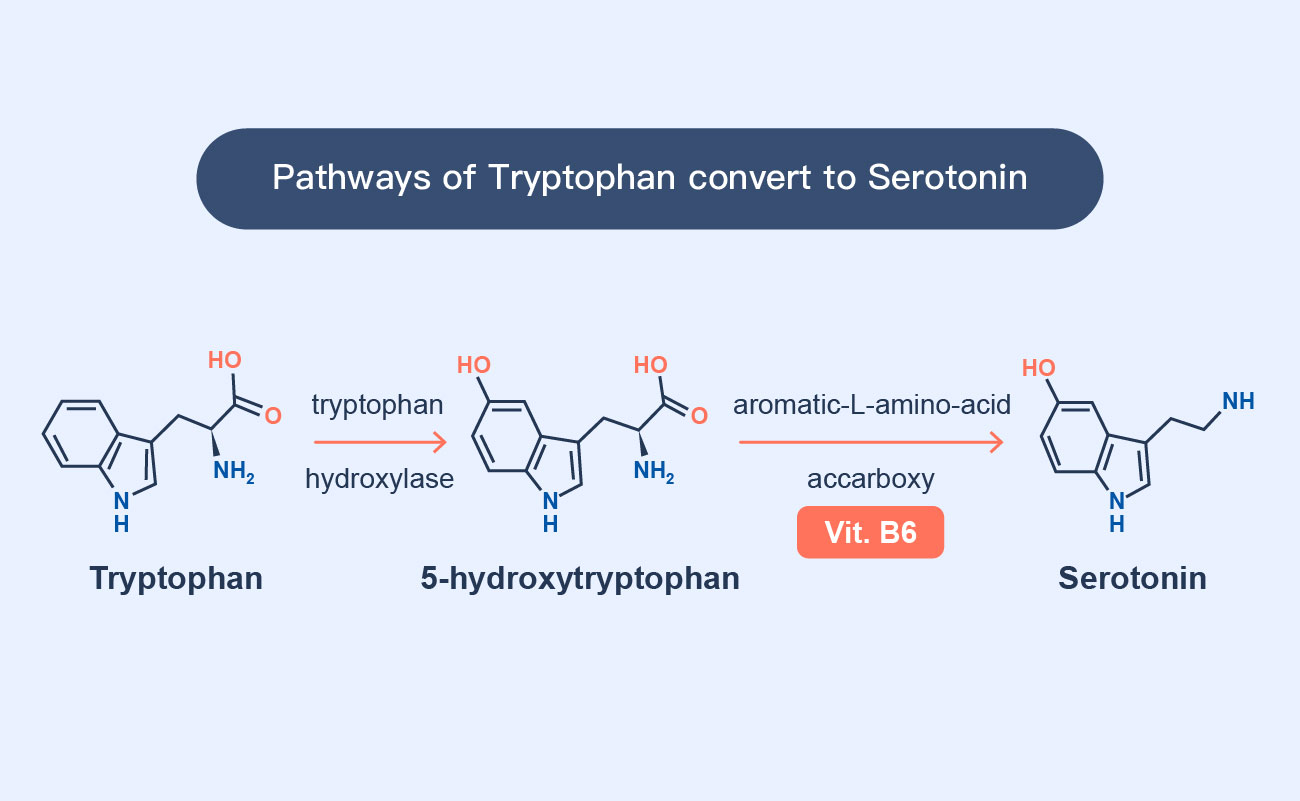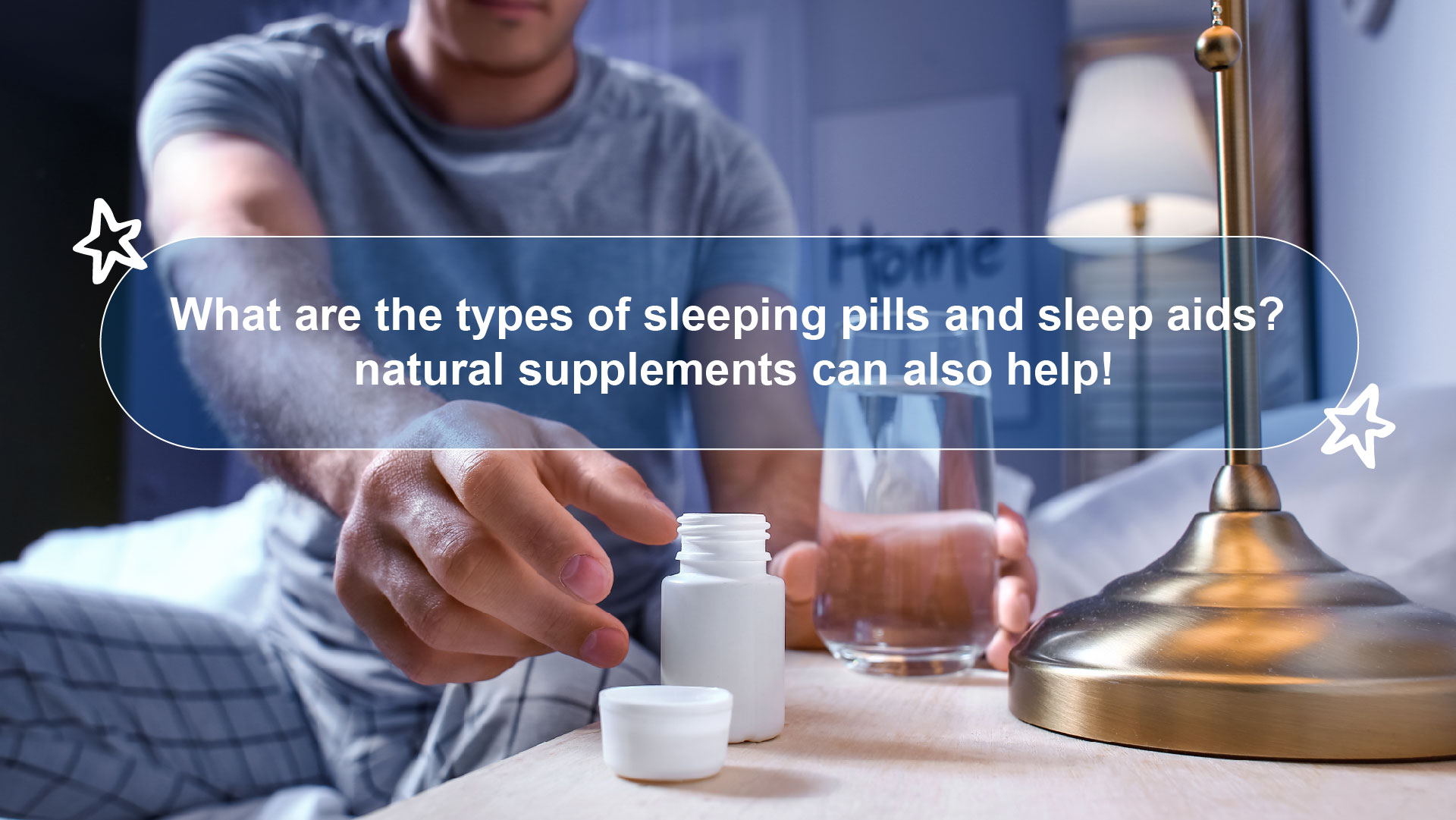The Difference Between Sleeping Pills and Sleep Aids

Medications that help with insomnia can be divided into two categories: Over-the-counter products with sleep-inducing effects that help you relax and fall asleep, commonly referred to as “sleep aids” by pharmacists, and prescription medications specifically used to treat insomnia, widely referred to as “sleeping pills” by doctors.
Sleep Aids:
– Antihistamines
– Melatonin
Sleeping Pills:
– Benzodiazepines (BZD)
– Non-Benzodiazepines (Non-BZD)
Among these four medications, antihistamines and melatonin can be purchased over the counter, while the other two require a doctor’s prescription.
Types and Effects of Sleeping Pills
Benzodiazepine Sleeping Pills (BZD):
Benzodiazepine sleeping pills can reduce the time it takes to fall asleep and extend sleep duration. In addition to sedative and sleep-inducing effects, they also have anti-anxiety, muscle relaxant, and anti-seizure effects. Common side effects include drowsiness, headache, dizziness, fatigue, mental confusion, muscle weakness, and motor coordination issues. Some people may experience a hangover effect the following day, such as slow movement, dizziness, or drowsiness. Benzodiazepines inhibit the central nervous system and are primarily metabolized by the liver, making them unsuitable for individuals with myasthenia gravis, severe respiratory insufficiency, sleep apnea, severe liver insufficiency, or benzodiazepine allergies.
Non-Benzodiazepine Sleeping Pills (Non-BZD):
Non-benzodiazepine sleeping pills act quickly and have a short half-life, allowing for fast sleep induction with less alteration of the sleep cycle. However, they lack the muscle relaxant, anti-seizure, and anti-anxiety effects of benzodiazepines. Due to their rapid action and fewer next-day side effects compared to BZD medications, they are well-accepted by patients. However, their significant and rapid effects can easily lead to dependence, making patients feel that other sleeping pills are ineffective, leading to long-term reliance and increasing tolerance over time.
Duration of Sleeping Pill Effects: Short, Medium, Long
Sleeping pills can be categorized by their duration of action into three types:
Short-acting:
Suitable for those with difficulty falling asleep, with minimal impact on the next day’s mental state. However, improper or frequent use can lead to rebound insomnia.
Medium-acting:
Suitable for those with shallow sleep or early awakening, increasing sleep duration.
Long-acting:
They are used for maintaining sleep throughout the night and for individuals with daytime anxiety or drowsiness.
Types and Effects of Sleep Aids
Antihistamines:
Antihistamines are commonly used to treat allergies and colds, controlling symptoms such as nasal congestion and runny nose. Due to their side effect of blocking wakefulness-promoting mechanisms in the brain, they can induce drowsiness and have been developed into non-prescription sleep aids. Common side effects include nausea, dizziness, blurred vision, increased intraocular pressure, urinary retention, and constipation. Long-term self-medication is not recommended, and if symptoms do not improve or side effects are severe, it is advisable to stop use immediately.
Melatonin:
Melatonin is a crucial substance in the body for regulating sleep cycles. Abnormal melatonin secretion (too little at night, too much during the day) can affect sleep patterns. Melatonin is often used to improve sleep issues caused by jet lag or disrupted biological clocks. In the United States, melatonin is classified as a dietary supplement and can be purchased in stores or online, commonly seen in sleep gummies. However, melatonin is a controlled substance in Taiwan and cannot be sold without permission. Consumers should be cautious to avoid purchasing illegal or unverified products.

Types and Effects of Natural Sleep Supplements
Tryptophan:
5-HTP (5-hydroxytryptophan) is a precursor to serotonin, an essential neurotransmitter. The body produces serotonin through the following process: food → protein → tryptophan → 5-HTP → serotonin. Adequate serotonin levels are crucial for mental health. In one study, 24 participants were given 200 mg of 5-HTP and exposed to a panic-inducing scenario (CO2 inhalation), and 5-HTP was found to reduce panic responses. Another study showed that children prone to nightmares experienced improvement after taking 5-HTP before bed for 20 days, with 83.9% reporting fewer nightmares six months after the study ended.
Vitamin B6:
In addition to basil extract and tryptophan, compounds like vitamin B6 are crucial for sleep. Vitamin B6 is essential for serotonin synthesis and supports nervous system health, thereby maintaining sleep quality and aiding in falling asleep.
GABA:
GABA (γ-aminobutyric acid) is a naturally occurring amino acid in the body that acts as an inhibitory neurotransmitter in the central nervous system, promoting relaxation. GABA deficiency can lead to anxiety, restlessness, fatigue, and stress. People in high-stress environments, such as athletes and office workers, are often more prone to GABA deficiency. While oral GABA is generally thought to be unable to cross the blood-brain barrier, recent studies suggest it may influence the brain via specific protein transporters or the gut-brain axis, helping alleviate stress and promote sleep. GABA levels in the blood rise quickly after ingestion, peaking at 30 minutes and dropping after 60 minutes, making it suitable for quick stress relief and sleep induction.


Somniphyt®: Your Solution to Insomnia
Supplementing with various nutrients enhances sleep quality. Somniphyt’s unique formula provides all the necessary pre-sleep nutrients at once, helping with anxiety-induced insomnia, sleep anxiety, or jet lag. It aids in relaxing the brain and emotions, reducing sudden awakenings, allowing you to enjoy peaceful and restful sleep, stabilizing emotions, redefining sleep quality, and starting each day with energy and vitality.
Somniphyt® Total Night
Somniphyt® Total Night LP

*Liability Disclaimer: Reich Pharm does not provide medical advice, diagnosis, or treatment.
*Friendly reminder: Consult your healthcare provider or pharmacist for advice before using this product if you are:
1. Pregnant or breastfeeding.
2. Infants or children.


